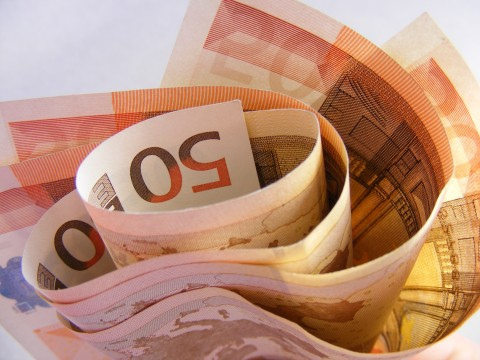A. M. Freyed
Infowars.comApril 24, 2012
Home Secretary Theresa May announced in January 2012 that the government would ban cash trading for scrap metal dealers under the Legal Aid, Sentencing and Punishment of Offenders Bill. Under the proposals ‘rag and bone’ itinerant collectors who are registered with their local authority to trade scrap metal will still be able to pay cash for scrap. The move has drawn criticism from the BMRA, which claims that itinerant traders are getting ‘special treatment’ from the government. – Let’s Recycle.com
The death of cash is much in the news these days, following Spanish government’s abrupt announcement banning cash transactions over 2,500 euros.
But what is surprising is how far advanced this trend is. Cash is being done away with in both bites and gulps. There have been articles in the alternative media discussing this on occasion but the mechanism is both subtle and overt.
The subtle part comes from the way cash is being whittle away at in certain industries. The US for instance has no overt , national cash bans in place but plenty of businesses are making it harder and harder to pay in cash.
US states have gotten into the act too. Louisiana, for instance, last year banned cash transactions for second-hand merchandise – making flea markets problematic.
In many states, pawn shops are under strict scrutiny when it comes to cash transactions, with a good deal of paper work now demanded.
In some Central and South American countries, finger-printing is required by certain stores and businesses if one pays in cash with US$100 or more. Western Union has certain policies in place that require finger-printing outside the US.
Then there are countries themselves. Mexico, for instance, has restrictions on numerous cash transactions including the purchase of real estate with cash. And there are restrictions on how much cash one can spend on vehicles, boats, airplanes and luxury goods.
Here’s something from the Economic Policy Journal back in February:
It’s Really, Really Getting Crazy: [Bloomberg has reported that] Italians Banned from Cash Transactions of More than 1,000 Euros … “Prime Minister Mario Monti, in office just over a month, wants landlords, plumbers, electricians and small businesses to stop conducting large transactions in cash, which critics say helps them evade taxes. The government on Dec. 4 reduced the maximum allowed cash payment to 1,000 euros from 2,500 euros” … The noose is tightening, everywhere. The elitists and banksters are clearly going for the big play. They want to monitor every transaction you make and they want to monitor you.
Greece, Italy, Spain … The idea, repeated over and over is that cash is for criminal activity and that it is often used to evade taxes.
But these days, so much is being criminalized that one begins to lose track. What is one to think when something that has been legal for centuries is suddenly deemed “criminal?”
In Spain, many are said to pay as much as half of the cost of a house in cash, thus diminishing tax liability a good deal. This is the practice in other high-tax European regions.
The higher the taxes, the more prevalent these gray and black-market transactions become. This is simple logic.
Lawmakers have forgotten (long ago, in fact) that the “best” laws are best applied within the ambit of natural law.
When government continually seeks to go perniciously against the wishes and practices of the governed people, nothing good can result. Inevitably, laws will be broken.
The more unreasonable the laws, the more law- breaking there will be. This becomes a vicious feed-back loop that conditions people to break laws, which leads to contempt for government activities generally.
Lawmakers may believe they are taking stances for “the greater good.” But the more they depart from reasonableness and common sense, the more difficulties they are likely storing up for civil society generally. It cannot end well.
As cash is continually restricted, if indeed it continues to be, people will turn to barter. If their actions are subject to scrutiny, the state will become increasingly intrusive, leading in turn to increased resentment.
The Internet is a factor in this as well, informing people of how others feel about unjust legislation and the moves they are taking to counteract the worst of it.
All of this has a deleterious effect on society. At some point such governmental actions become significantly counterproductive.
The global elites – those shadowy dynastic families behind much of this mischief – may wish to continue this process to consolidate the world government they apparently seek.
They are obviously not averse to provoking violence as it provides an excuse for further crackdowns and overt social and economic control. Time will tell if they are correct or are misjudging.


No comments:
Post a Comment